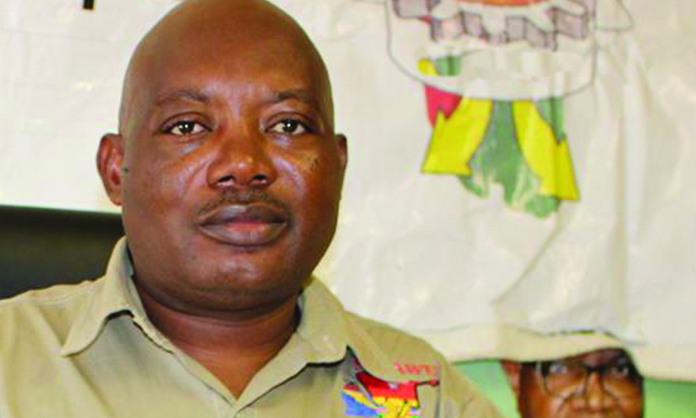The president of the Namibia Seamen and Allied Workers Union (Nasawu), Paulus Hango, has challenged the assertion by the minister of fisheries and marine resources, Derek Klazen, that the Governmental Employment Redress Programme (Gerp) is not sustainable.
Gerp is a Cabinet-sanctioned initiative through the Ministry of Fisheries and Marine Resources to secure employment for fishermen who have lost their jobs through abandonment and their participation in illegal industrial action in 2015.
The programme saw 2 483 dismissed fishermen being absorbed by 15 companies.
Klazen was speaking at a press conference on Friday, where he signed the renewal of contracts for the re-employed fishermen under Gerp with the participating companies and the Ministry of Labour, Industrial Relations and Employment Creation.
He criticised the auctioning off of quotas by the government as the proceeds of these auctions are “just sent to the treasury”.
Hango defended fishermen who want to be deployed at sea, because they could earn more than N$4 000 per month, he said.
“There is the normal rate, commission, overtime and working on holidays, which can make them take home more than N$4 000.
“These days the cost of living is high and people need as much money as they can earn to buy food, pay rent and take care of their children’s educational needs,” he said.
“It is now difficult to negotiate with the companies, because they will cite the agreement with the government and the workers are forced to take whatever is on offer,” Hango said.
Hango said: “Most of these companies do not utilise their allocated quotas, meaning there is still room to employ extra fishermen. We support the idea of governmental objectives, like helping with drought, but the government must refine its policies towards fishermen.”
The labour ministry was represented at the event by deputy minister Hafeni Ndemula.
Klazen said 550 workers had been taken into the horse mackerel sector, while 1 933 went to the hake sector under the designation programme in which four companies are in the horse mackerel business, while 11 are in the hake sector.
“To facilitate the programme, a total of 18 370 tonnes of hake quotas and 16 500 tonnes of horse mackerel have been allocated to the 15 designated entities that took in 2 483 ex-fishermen.
“Given the current state of fisheries stock, which is declining, especially the horse mackerel, this programme I am talking about is not sustainable in the long run. This is so because the total allowable catch is declining every year,” Klazen said.
He said one measure for the ministry to get some quota back is when workers are no longer in the employment of a specific company with which there is a signed agreement.
“Then it means quota cannot continue with that company, but are reverted back to the ministry and are reallocated to governmental objectives,” he said.
Klazen said the government decided to help those who have been unemployed for five years, but added it is up to the companies employing them to work out the modalities of their employment.
The involved fishermen are paid N$4 000 a month – whether they go to work or stay at home.
“They were holding an important industry at ransom, but fishing operations had to continue, as quotas for companies had just been announced. The companies hired other workers to fill the gap and are now permanent employees with entitlements,” he said.
Klazen lashed out at those ex-fishermen who, despite government efforts to ease their plight, are demanding that they be sent out to sea, saying it’s companies’ prerogative to assign them work.
“One company may take in 250 but cannot give them all work on fishing vessels, because each vessel takes only about 60 people. So, the company may want to rotate them while others stay at home,” he said.
Klazen said Namibia does not have fishing vessels of its own and those that come in may first have to be cleared by the European Union to see that they were not involved in illegal fishing.
Ndemula appealed for unity of purpose among all stakeholders.
“We do not have to fight, but sit down and take the necessary measures to reach the right agreements for our people to get jobs,” he said.
– email: matthew@namibian.com
Stay informed with The Namibian – your source for credible journalism. Get in-depth reporting and opinions for
only N$85 a month. Invest in journalism, invest in democracy –
Subscribe Now!






